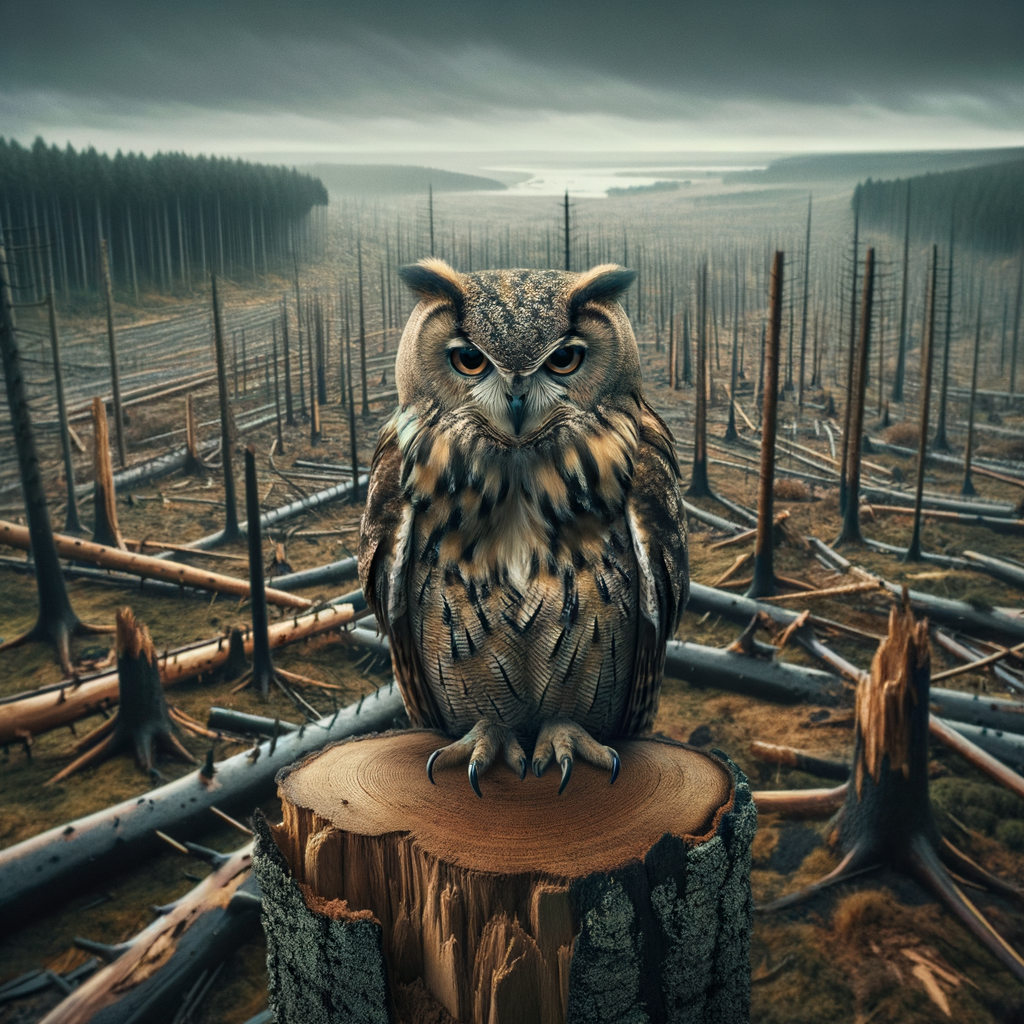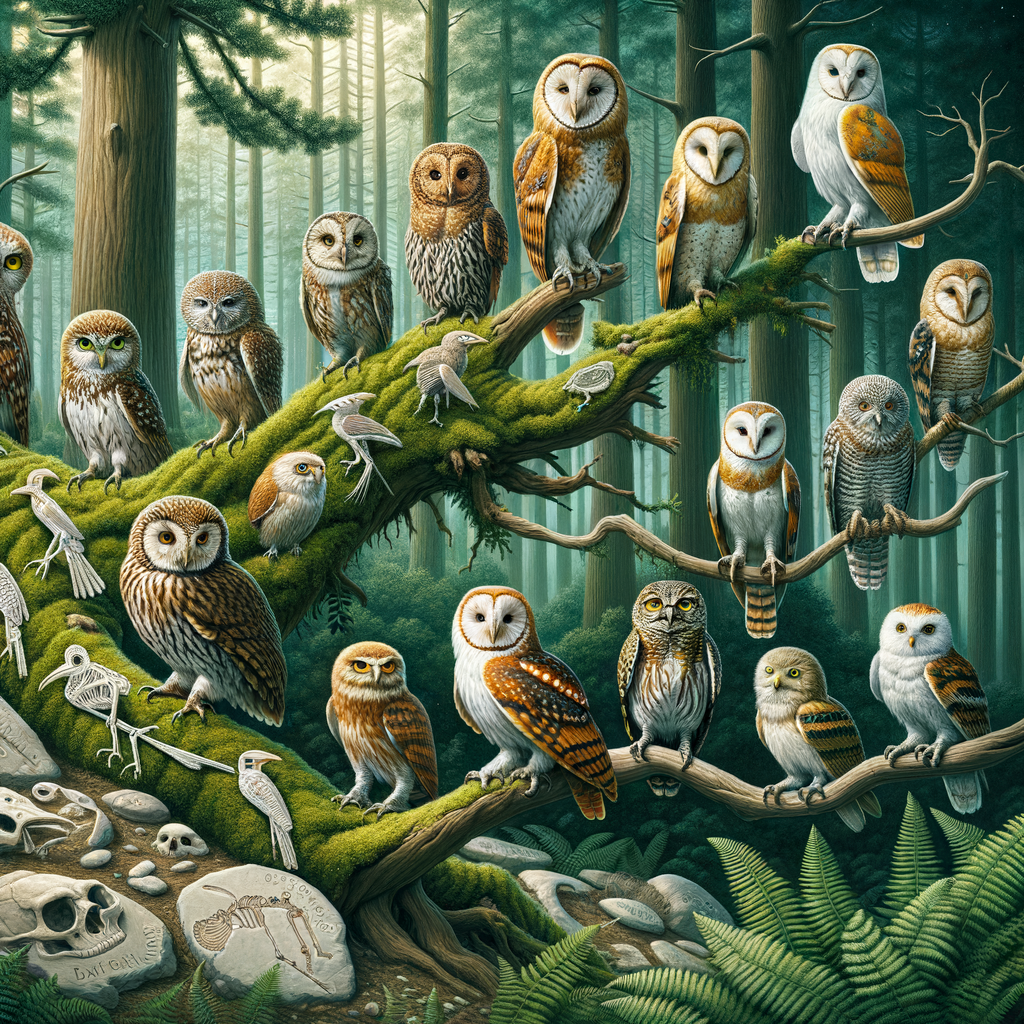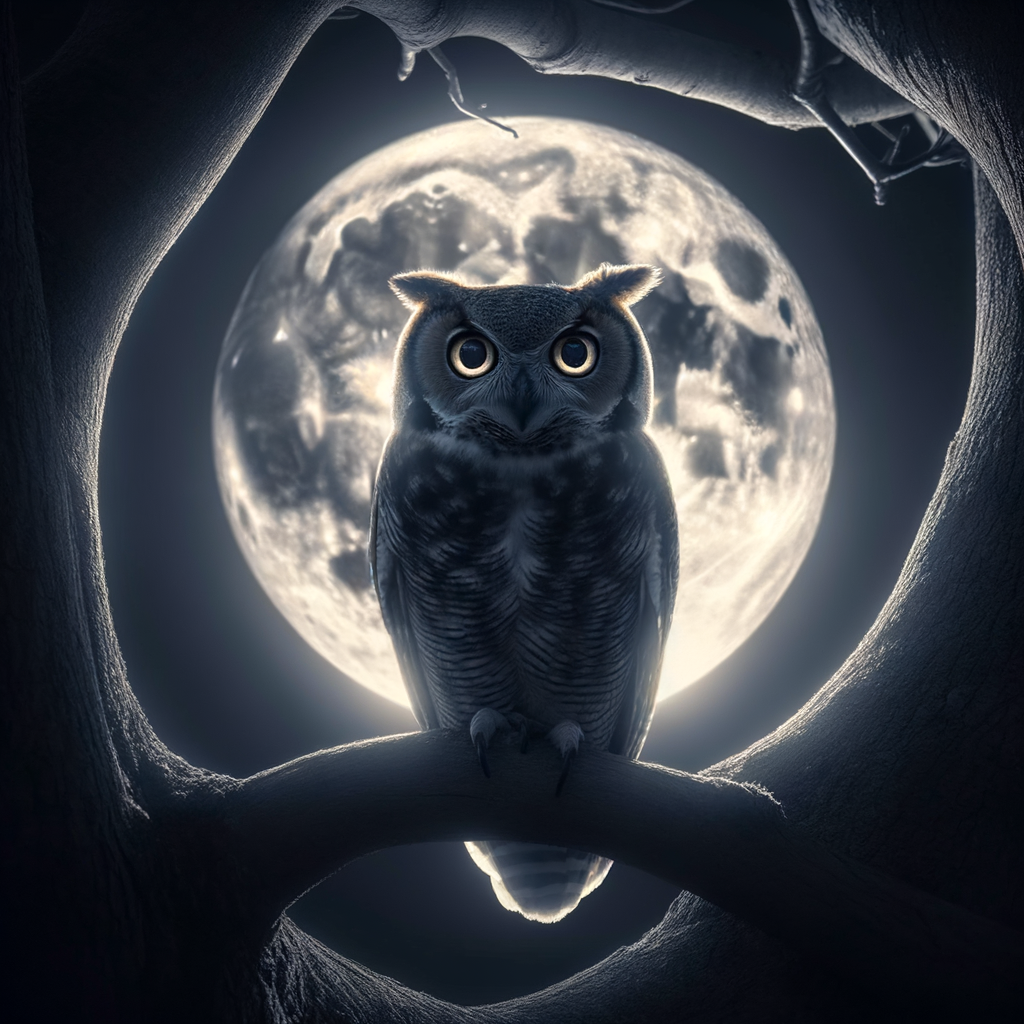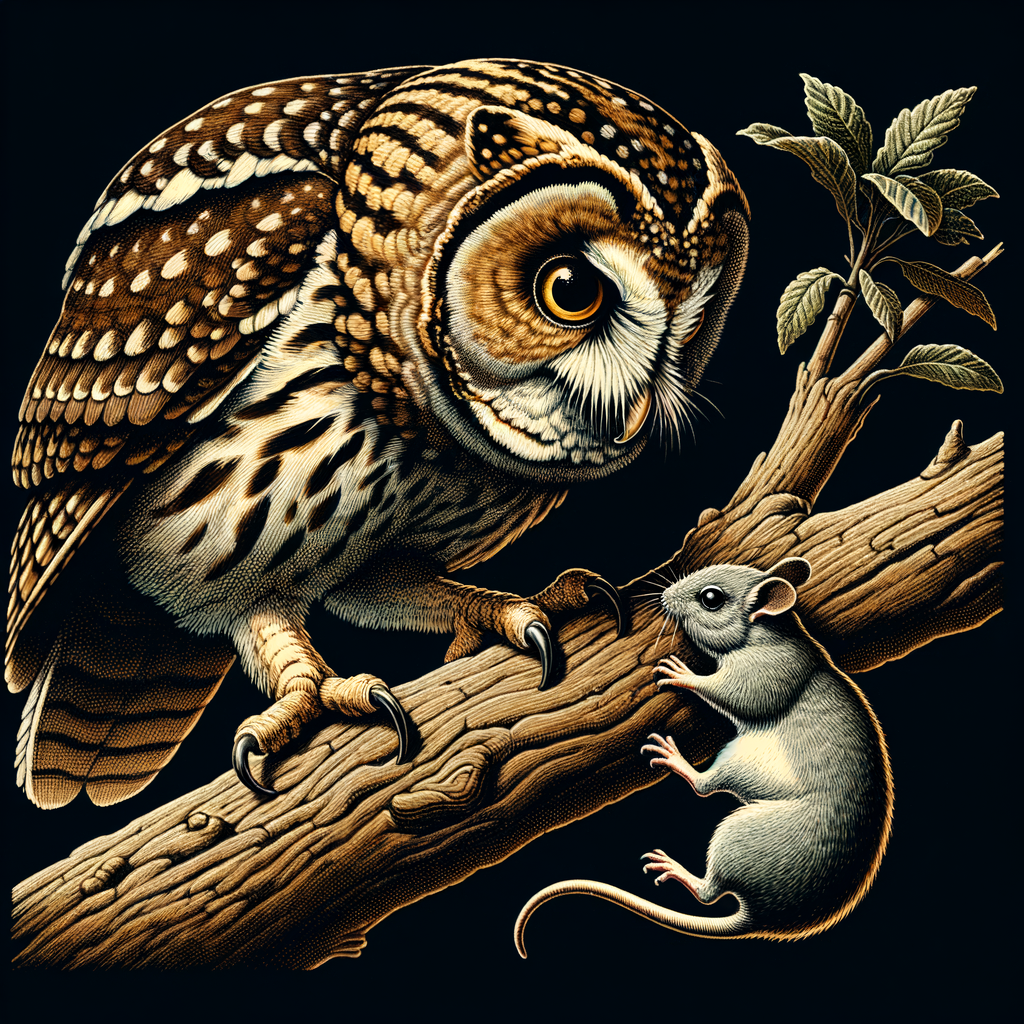
Introduction to Owl Wisdom
Have you ever wondered why owls are often associated with wisdom in various cultures and folklore? This association is not just a random coincidence. It’s based on the unique characteristics and behaviors of these fascinating creatures. In this blog post, we will explore the concept of Owl Wisdom and how it relates to lessons we can learn from nature.
-
- Understanding the Concept of Owl Wisdom
Owl Wisdom is a metaphorical concept that encapsulates the wisdom and knowledge that owls symbolize in various cultures. Owls are nocturnal creatures, meaning they are active during the night. They have an exceptional ability to see in the dark, which is often interpreted as a metaphor for seeing through deception and uncovering hidden truths.
Owls also have a nearly 360-degree field of vision, which symbolizes the ability to see things from different perspectives. Their keen hearing allows them to detect even the slightest sounds, representing attentiveness and alertness. All these characteristics combined give us the concept of Owl Wisdom, which encourages us to seek truth, be attentive, and consider multiple perspectives.
-
- How Owl Wisdom Relates to Lessons from Nature
Lessons from nature are all around us, and Owl Wisdom is just one of many. Nature teaches us to adapt, to be patient, and to coexist. Similarly, Owl Wisdom encourages us to adapt to changing circumstances (just as owls adapt to night-time living), be patient in our pursuit of truth, and coexist with others by considering their perspectives.
Moreover, just like owls use their keen senses to navigate the night, we can use our wisdom to navigate through life’s challenges. Thus, Owl Wisdom is not just about the wisdom of owls, but it’s a broader lesson about the wisdom of adapting, being patient, and understanding others.
In the following sections, we will dive deeper into the wisdom of owls, explore how we can apply it in our daily lives, and look beyond owls to other lessons nature has to offer. So, let’s embark on this journey of wisdom and discovery together.
The Wisdom of Owls: A Deep Dive
Let’s delve into the fascinating world of owls and uncover the wisdom they can offer us. These majestic creatures are not just symbols of wisdom in various cultures, but they also exhibit behaviors and traits that we can learn from.
Learning from Owls: Key Lessons
There are three key lessons we can learn from owls: observation and patience, adaptability and resilience, and efficiency and precision. Let’s explore each of these in detail.
-
- Observation and Patience
Owls are known for their keen observation skills. They can sit quietly for hours, patiently waiting for the perfect moment to strike. This teaches us the importance of patience and the value of observing before acting. In our fast-paced world, we often rush into decisions without taking the time to observe and think. By emulating the owl’s patience, we can make more informed decisions.
-
- Adaptability and Resilience
Owls are found in nearly every corner of the world, from the cold Arctic tundra to the hot desert. This adaptability is a testament to their resilience. They teach us that no matter what challenges we face, we can adapt and overcome them. Resilience is not about avoiding difficulties, but about facing them head-on and adapting to new circumstances.
-
- Efficiency and Precision
Owls are efficient hunters. They use their sharp talons and beak with precision to catch their prey. This efficiency and precision can be a lesson for us in our daily lives. Whether it’s completing a project at work or organizing our home, being efficient and precise can save us time and energy.
Owls are not just symbols of wisdom, but they also embody traits and behaviors that we can learn from. By observing and learning from them, we can apply these lessons in our daily lives.
Owl Symbolism in Various Cultures
Let’s explore how different cultures perceive the owl, a bird that has fascinated humanity for centuries. We’ll delve into Greek mythology, Native American symbolism, and even modern pop culture.
-
- Owls in Greek Mythology
In ancient Greece, the owl was a symbol of wisdom and knowledge. This is largely due to the owl’s association with the goddess Athena, who was the goddess of wisdom. The Greeks believed that the owl was able to see things that humans could not, and this ability was seen as a sign of deep wisdom and insight. The owl was also a protector, often depicted alongside Athena to ward off evil.
-
- Native American Owl Symbolism
In Native American cultures, the owl is often seen as a messenger and a guardian of the spirit world. Different tribes have different interpretations, but many see the owl as a symbol of change, transition, and death. It’s believed that the owl can guide spirits to the afterlife. However, it’s not all gloomy – some tribes also associate the owl with wisdom and knowledge, similar to the Greeks.
-
- Owls in Modern Pop Culture
Today, owls continue to captivate us, especially in popular culture. One of the most famous examples is the Harry Potter series, where owls are used as messengers and pets. They symbolize magic, mystery, and wisdom. In other media, owls often represent wisdom, intelligence, and a deep connection with nature. They remind us to be observant and patient, just like the owl who waits silently for its prey.
As we can see, the symbolism of the owl is rich and varied, spanning different cultures and eras. Whether it’s the wise owl of Athena, the spiritual messenger of Native American tribes, or the magical companion in a modern fantasy tale, the owl continues to inspire and intrigue us with its mystery and wisdom.
Applying Owl Wisdom in Daily Life
Just as we can learn from the wisdom of owls, we can also apply their teachings to our daily lives. This section will explore how to use owl wisdom for personal growth, focusing on three key areas: developing patience and observation skills, embracing change and adapting, and striving for efficiency in tasks.
Personal Growth through Owl Wisdom
Personal growth is a journey, and like any journey, it can be made easier with the right guidance. Owl wisdom can serve as a beacon, guiding us towards a more fulfilling life. Let’s delve into the specifics.
-
- Developing Patience and Observation Skills
Owls are known for their patience and keen observation skills. They spend hours silently watching and waiting for the right moment to act. This teaches us the importance of patience in our lives. Instead of rushing through tasks, we should take the time to observe and understand the situation. This approach not only reduces mistakes but also leads to better decision making.
-
- Embracing Change and Adapting
Owls are adaptable creatures. They can thrive in various environments, from dense forests to open plains. This adaptability is a lesson for us to embrace change and adapt to new situations. Whether it’s a change in our personal lives or at work, we should see it as an opportunity for growth rather than a challenge.
-
- Striving for Efficiency in Tasks
Owls are efficient hunters. They use their energy wisely, striking only when they are sure of success. This efficiency is a lesson for us to apply in our daily tasks. By planning and prioritizing our tasks, we can achieve more with less effort. It’s not about working harder, but working smarter.
The owl wisdom offers valuable lessons for personal growth. By developing patience and observation skills, embracing change and adapting, and striving for efficiency in tasks, we can enhance our lives and achieve our goals more effectively.
Case Studies: Success Stories of Applying Owl Wisdom
Let’s delve into some real-life examples of individuals who have successfully applied the wisdom of owls in their daily lives. These case studies highlight the transformative power of owl wisdom when put into practice.
-
Case Study 1: Embracing Change with Owl Wisdom
John, a middle-aged executive, was struggling with a major career transition. He was apprehensive about the change and uncertain about his future. Inspired by the adaptability of owls, he decided to embrace the change instead of resisting it. He began to observe, learn, and adapt to his new environment, much like an owl would in a new territory. The result was astounding. John not only adjusted to his new role but also excelled in it, earning a promotion within a year.
-
Case Study 2: Patience and Observation in Parenting
Sarah, a mother of two, was often frustrated with her children’s behavior. She felt overwhelmed and impatient. After learning about the patience and observation skills of owls, she decided to apply these traits in her parenting. She started observing her children’s behavior patterns and patiently worked with them to address their issues. The change was remarkable. Her relationship with her children improved, and she felt more confident and less stressed as a parent.
-
Case Study 3: Striving for Efficiency in Business
Mike, a small business owner, was struggling with productivity and efficiency in his company. He was inspired by the efficiency of owls in hunting and surviving. He started implementing strategies to streamline processes, eliminate waste, and improve productivity, all inspired by the owl’s efficient ways. The impact on his business was significant. His company’s productivity improved, and they saw a substantial increase in profits within six months.
These case studies demonstrate the power of applying owl wisdom in our daily lives. Whether it’s embracing change, practicing patience and observation, or striving for efficiency, the wisdom of owls can lead to remarkable transformations.
Nature’s Teachings: Beyond Owls
While owls are often associated with wisdom, they are not the only creatures in nature from which we can learn valuable lessons. Let’s explore some of the teachings we can glean from other animals.
Wisdom in Nature: Lessons from Other Animals
Just like humans, animals have unique behaviors and characteristics that help them survive and thrive in their environments. By observing these behaviors, we can learn important life lessons.
-
- Learning Resilience from the Ant
Ants are small, but they are incredibly resilient creatures. Despite their size, they can carry objects many times their own weight. They work tirelessly, overcoming obstacles in their path. This teaches us the lesson of resilience and determination. No matter how big our challenges may seem, we can overcome them with hard work and perseverance.
-
- Teamwork Lessons from Bees
Bees are known for their remarkable teamwork. They work together in a hive, each performing a specific role for the benefit of the whole community. This teaches us the importance of cooperation and teamwork. Just like bees, we can achieve great things when we work together towards a common goal.
-
- Embracing Solitude: Lessons from the Leopard
Leopards are solitary animals. They spend most of their lives alone, hunting and living independently. This teaches us the value of solitude. Sometimes, it’s important to spend time alone, to reflect and understand ourselves better. Solitude can help us grow and become stronger individuals.
Nature is full of wisdom. By observing and learning from the behaviors of different animals, we can gain valuable insights and apply them in our own lives.
Understanding the Interconnectedness of Nature
Just like the wisdom of owls, there are many lessons we can learn from understanding how nature is interconnected. Let’s explore two key aspects: the food chain and ecology.
-
The Food Chain: A Lesson in Interdependence
The food chain is a perfect example of how every creature, big or small, plays a crucial role in the ecosystem. It’s like a giant puzzle where each piece is essential to complete the picture. Let’s break it down:
Level Example Role Producers Plants They make their own food using sunlight and provide the base for the food chain. Consumers Animals They eat the producers or other consumers for energy. Decomposers Fungi and bacteria They break down dead plants and animals, returning vital nutrients to the soil. From this, we can see that every living thing depends on others for survival, just like how we humans rely on each other in our communities. This is a lesson in interdependence.
-
Ecology and the Balance of Nature
Ecology is the study of how living things interact with each other and their environment. It teaches us about the delicate balance of nature. For instance, if a species of animal becomes extinct, it can affect the whole ecosystem. This is because other animals might rely on it for food, or it might have helped control the population of another species.
Think about a garden. If there are too many rabbits, they might eat all the plants. But if there are foxes, they keep the rabbit population in check, allowing the plants to thrive. This is a simple example of the balance of nature.
By understanding ecology, we learn the importance of every creature and plant in maintaining the balance of nature. It’s a reminder that we all have a part to play in preserving our world.
So, just like the wisdom of owls, the interconnectedness of nature teaches us valuable lessons about interdependence and balance. It’s a reminder that we are all part of a larger system and that our actions can have far-reaching effects.
Final Thoughts
As we reach the end of our journey exploring the wisdom of owls and the profound lessons nature has to offer, it’s time to reflect on what we’ve learned and how we can apply these insights in our lives.
-
- Recap of Key Takeaways
Firstly, we delved into the fascinating world of owls, uncovering their unique traits and behaviors that symbolize wisdom. We learned that owls are strategic hunters, patient observers, and masters of adaptation. These characteristics serve as powerful metaphors for strategic thinking, patience, and adaptability in our own lives.
Next, we explored how to apply owl wisdom in our daily life. We discussed the importance of keen observation, strategic planning, and the ability to adapt to changing circumstances. We also highlighted the value of silence and solitude, traits often embodied by owls.
Lastly, we expanded our scope beyond owls to embrace the broader teachings of nature. We discovered that nature, in all its complexity and diversity, is a rich source of wisdom and inspiration. From the resilience of trees to the industriousness of ants, nature offers countless lessons for those willing to observe and learn.
-
- Final Thoughts on Owl Wisdom and Nature’s Profound Lessons
The wisdom of owls and the profound lessons from nature serve as a reminder of the importance of patience, observation, and adaptability. They challenge us to think strategically, value solitude, and embrace change. By applying these lessons, we can navigate life’s challenges with greater wisdom and resilience.
As the great naturalist John Muir once said, “In every walk with nature, one receives far more than he seeks.” So, let’s continue to walk with nature, embracing its wisdom, and applying its lessons in our journey of life.






